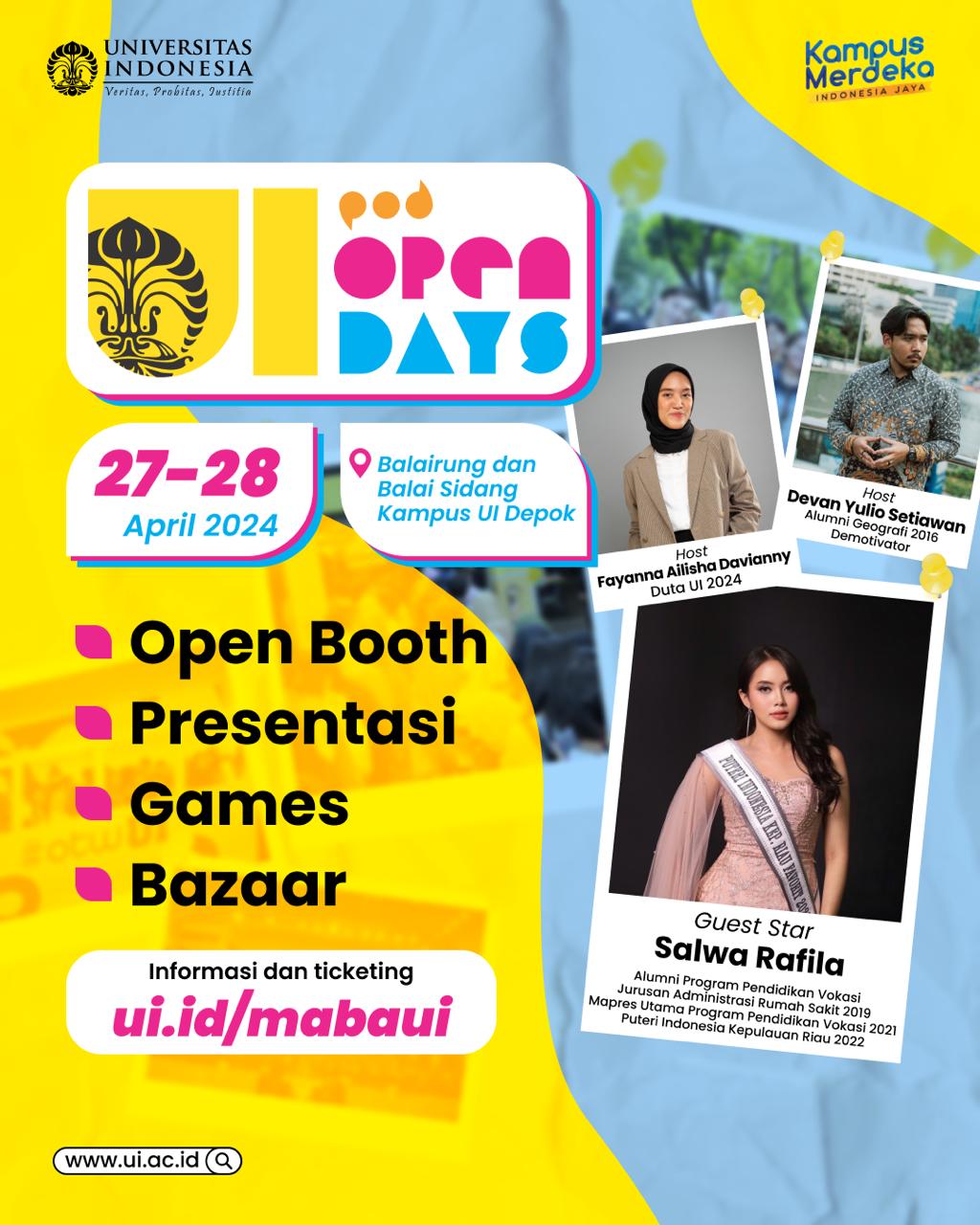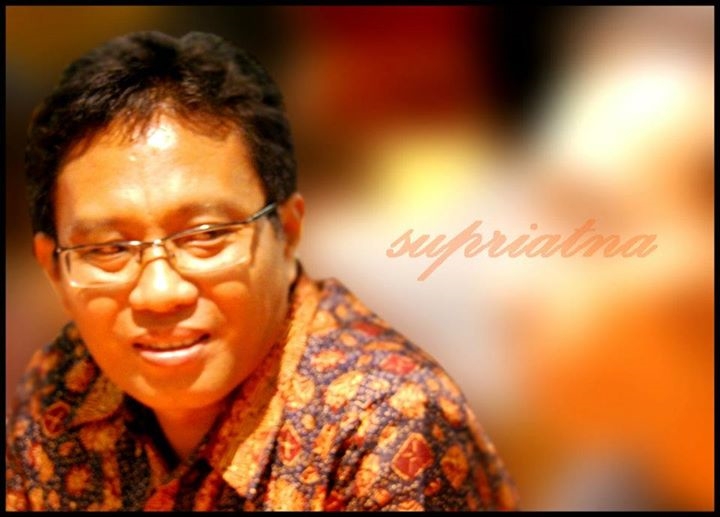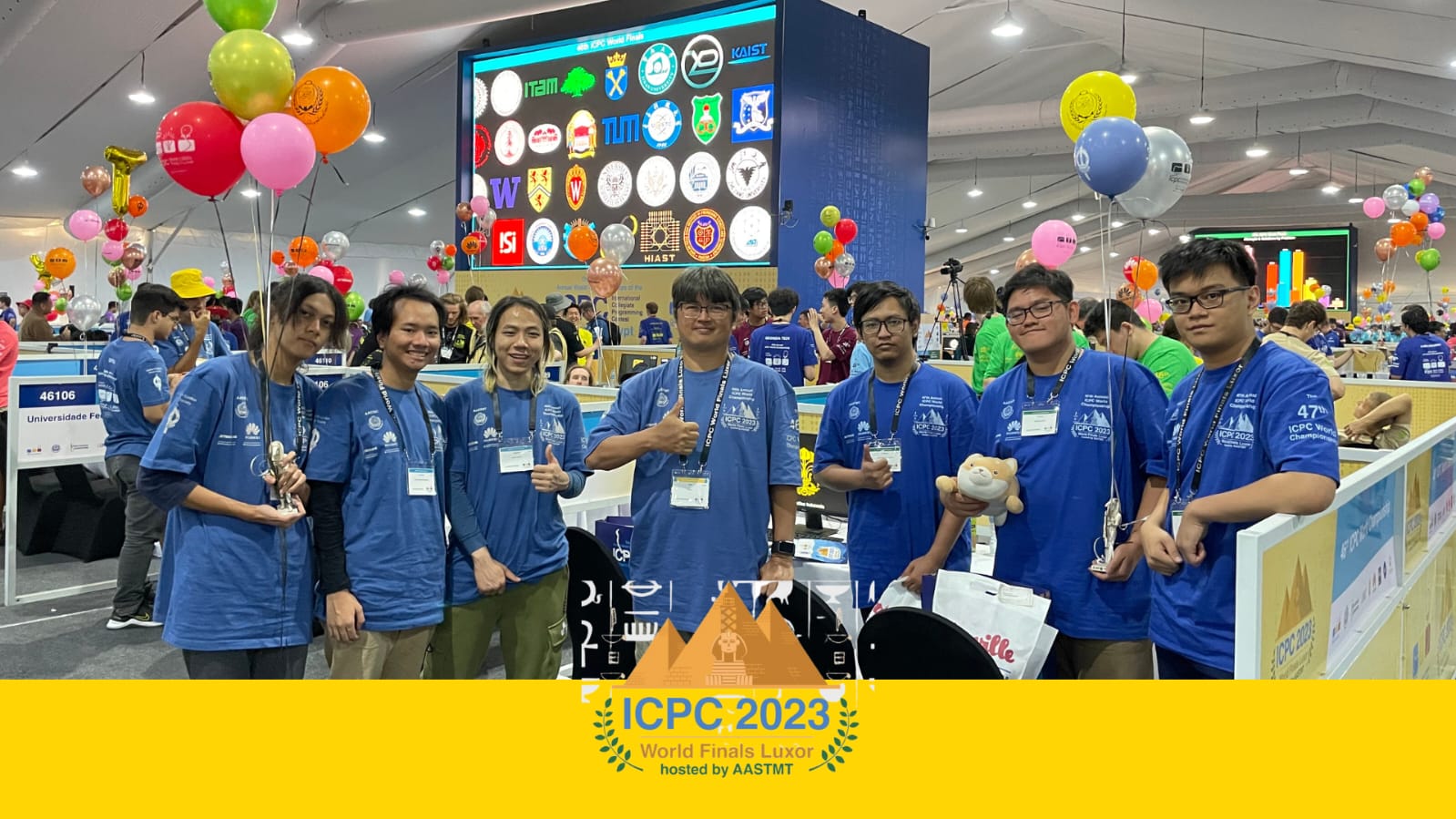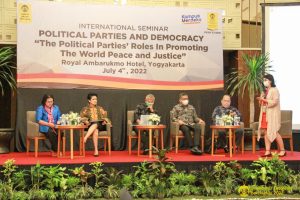
Dr. Hasto Kristiyanto, political figure; Prof. Dr. Satya Arinamto SH., MH., professor at the Universitas Indonesia; Arief Budiman, S. S., SIP., MBA, Chairman of the General Election Commission (2017-2021 Period); Dr. Connie Rahakundini Bakrie, academic, military observer; Dr. Politic. Sc. Henny Saptatia Drajati Nugrahani, MA, was present as a speaker at an international seminar organized by ILUNI UI together with SKSG Universitas Indonesia (UI), with Dr. Puspitasari S. Sos., MSi. as the moderator at the international seminar”The Political Parties’ Roles in Promoting The World Peace and Justice” was held in a hybrid(half offline/half online) from the Royal Ambarrukmo Hotel, Yogyakarta (4 July 2022), attended by around 100 participants offline. .
This international seminar was opened by Universitas Indonesia Chancellor Prof. Ari Kuncoro, SE., MA., PhD., and was attended by the Head of the Universitas Indonesia School of Strategic and Global Studies Doctoral Program, Dr. Drs. A. Hanief Saha Ghafur, MSi.; Tanjungpura University Chancellor Prof. Dr. Garuda Wiko, S.H., M.Sc.; The Chancellor of ASMI’s Institute of Business and Multimedia, Colonel Dr. Freddy Rumambi, M.M.; Rector of Panca Bhakti University, West Kalimantan, Dr. Purwanto S.H., M.H.; Dean of the Defense University Major General TNI Dr. Pujo Widodo, MSi.; Head of ILUNI Graduate School UI Dr. Audrey G. Tangkudung, and Head of the Public Relations and KIP UI Bureau Amelita Lusia.
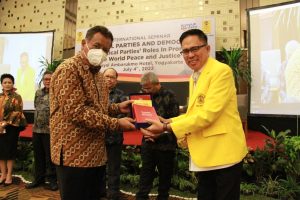
In his remarks, the UI Chancellor said that the topics discussed in this seminar were very relevant considering that in recent weeks the national political atmosphere and temperature had been getting hotter. “A number of political party leaders visit each other, explore cooperation with each other ahead of the 2024 election. These domestic political events are very interesting to study, analyze, and then make scientific writings in the form of journals and proceedings,” he said.
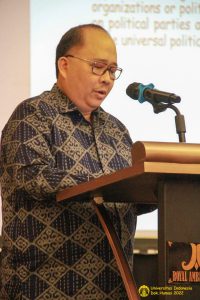
He said that political parties should not only be busy with internal problems, but can contribute more to resolving conflicts and world issues. When the world is currently in a situation of uncertainty, ambiguity, disruption of energy supply chains, and the occurrence of the Russia-Ukraine war in Europe, the global community is looking forward to the active role of political parties. “The concrete actions taken by the President of the Republic of Indonesia, Joko Widodo during his visit to Europe, especially to Ukraine and Russia, which are in conflict, are an example that although he is not the leader of a political party, President Joko Widodo is actively setting an example in seeking justice and world peace. , “said Prof. Ari.
In session 1, the first presentation was delivered by Prof. Satya Arinamto with the topic “Some Notes on Political Parties and Democracy in Indonesia“. In the conclusion of his presentation, Prof. Satya explained that in the New Order era, democracy within the government could not be realized through political parties, because since 1975 the government and the DPR (DPR) have implemented Law Number 3 of 1975 which limits the number of political parties and the Working Group to close the possibility of forming political parties. It was in the reform era that the administration of the state through the empowerment of political parties became more democratic.
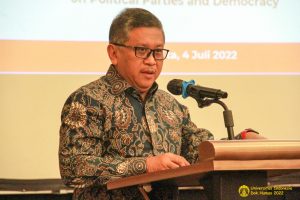
Next, Hasto Kristiyanto delivered the topic “Political Parties and Democracy: The Role of Political Parties in the Struggle for Justice and World Peace”. According to him, ideology in the context of democratization is the soul and basis for forming the character of political parties. One of the points of the conclusion that Hasto conveyed was that by understanding the purpose of the state and the essence of Pancasila as the Indonesian nation’s view of life for the world, every political party must play a strategic role in the struggle to create a new world order as pioneered by Bung Karno.
Next, Arief Budiman discussed the topic “Political Parties and Democracy, priot to the future 2024 Simultaneous General Election and Regional Head Election”. He gave notes related to the holding of the 2024 general election and the 2024 simultaneous elections that were peaceful and just, among other things, that politics is actually for the people, not for politicians. Money politics, hoaxes, and SARA (Ethics,Religions,Races) issues may still go to the surface in the contestation process during the General Election and Election, both digitally and conventionally. In addition, the neutrality of the ASN (state civil apparatus), TNI (Indonesia National Army) , and Polri (Indonesia National Police) needs to put attention to it because it can become a prone point of conflict, and our politics identity should be one unity of the Republic of Indonesia.
When discussing “Democracy, Civil-Military Relations & Peace, A Brief Study of the ESP Factor as a Force Element for the Corrosion of Democracy”, Dr. Connie Rahakundini Bakrie said that democracy is considered as an agent towards establishing peace. By implementing democracy, a country will be inclined towards peace.
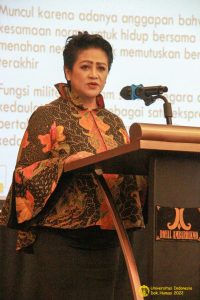
In his view, the function of the military in a democratic country is to maintain territorial sovereignty, while the defense function carried out by the military is placed in the context of defending the sovereignty of the state and people, its sustainability, and maintaining peace. He explained that democratic peace theory provides intellectual justification with balanced civil-military relations to correctly conclude that democracy supports world peace.
However, if you look at the development of the world situation since the last five months, especially in relation to the Russia-Ukraine War, it is necessary to review it again to explain why democratic countries are still at war. According to him, civil-military relations are like the Yin-Yang philosophy, which are two forces with different characters, but need each other. Yin and Yang are beautiful and honorable in their place, whereas mixing the two streams of energy creates chaos in the flow, resulting in death.
Session 1 closed with a presentation delivered by Dr. Polit.Sc. Henny Saptatia Drajati Nugrahani, M.A., with the topicPolitical Parties and Democracy. Session 2 was conducted in four other rooms with speakers from within the country and from the University of Italy, Pakistan Islamic University, Australian National University, and National ChengChi University (Taiwan).

